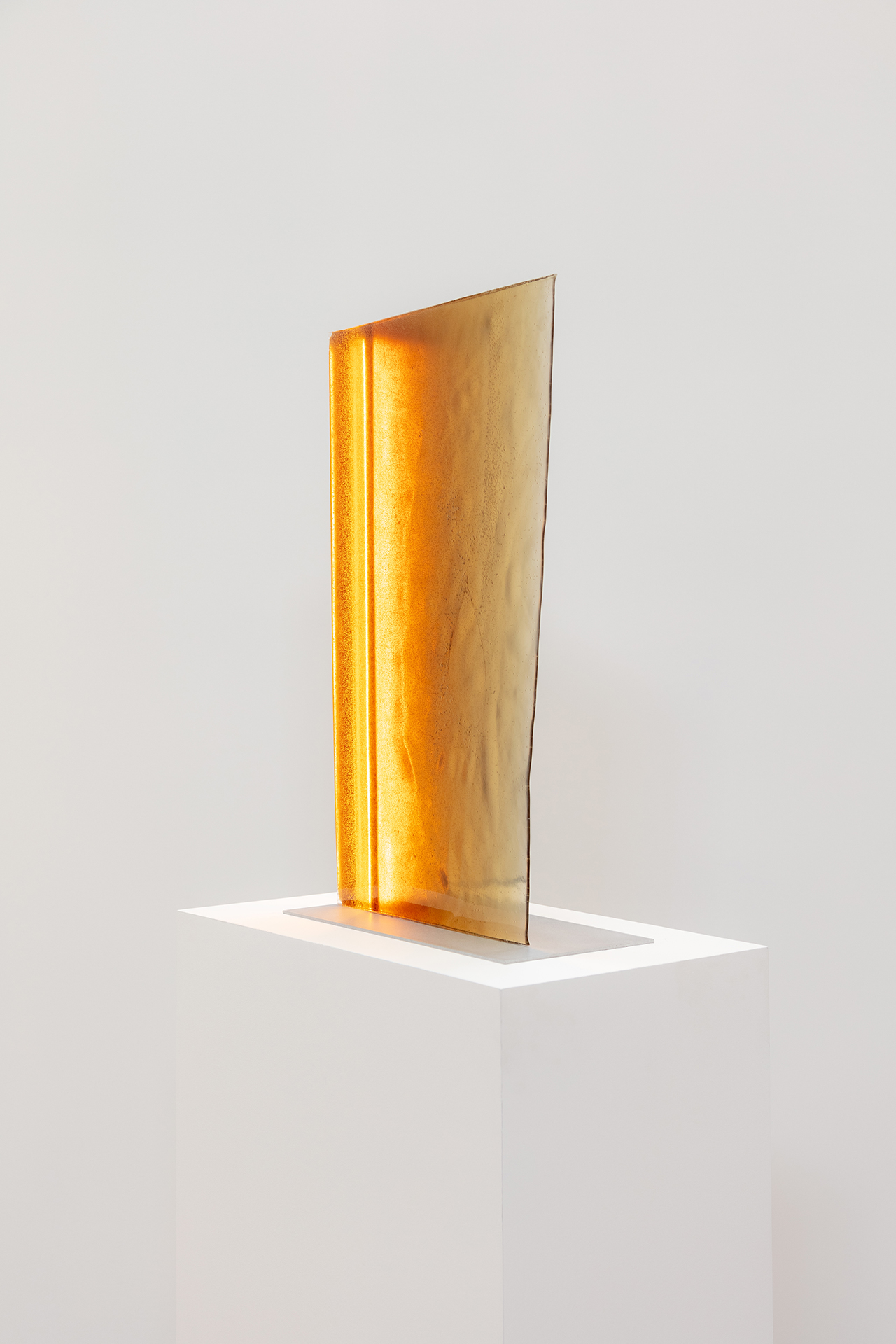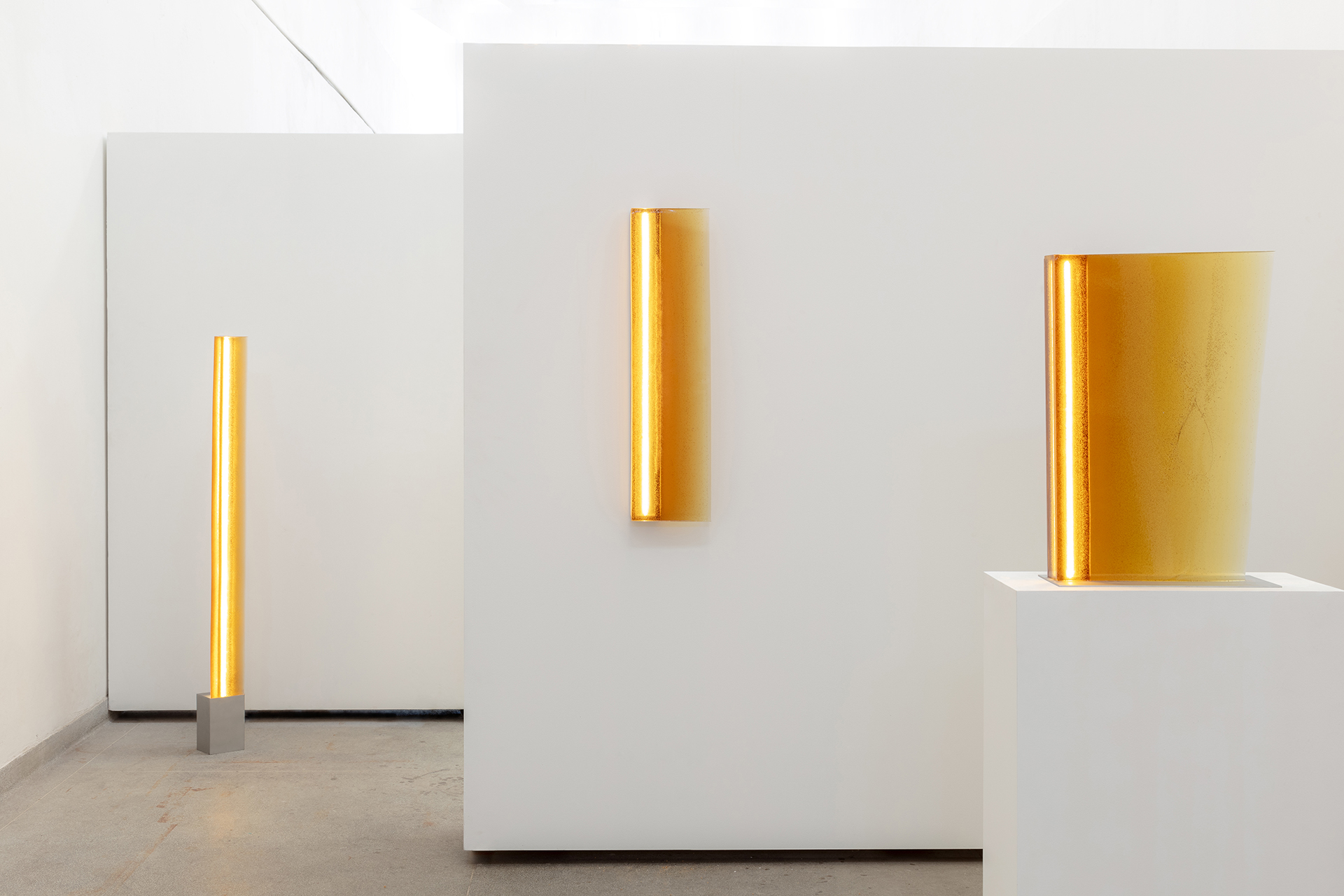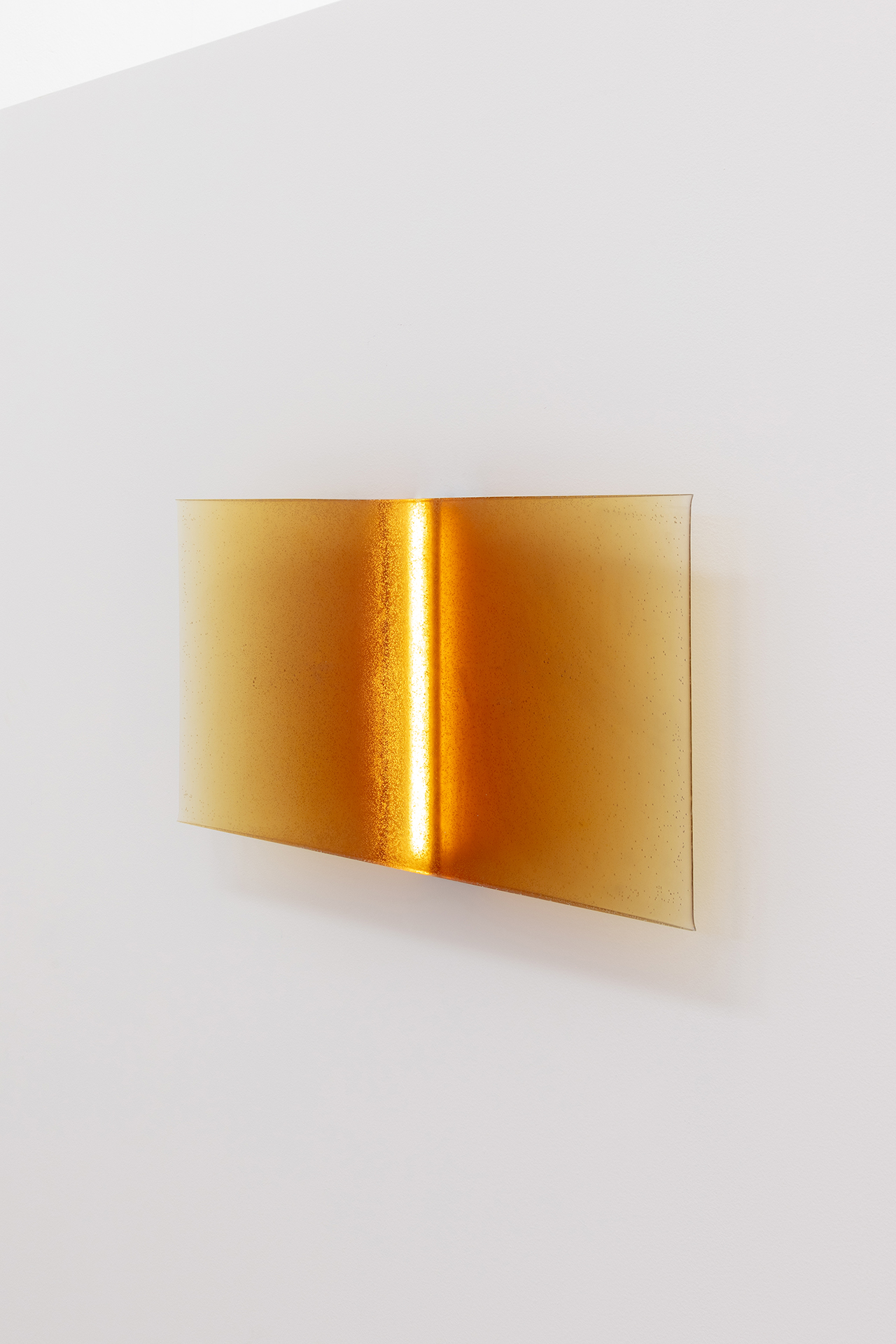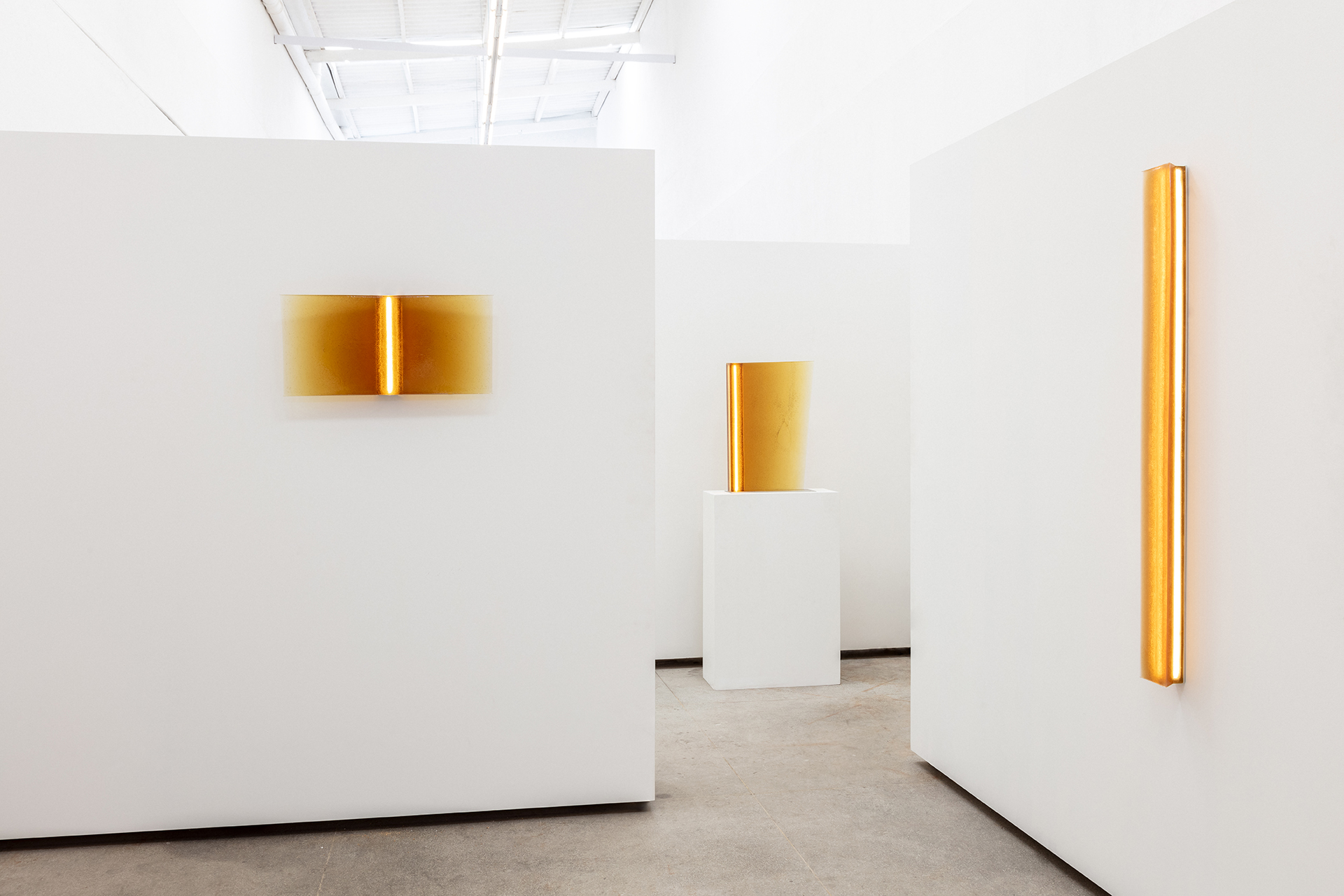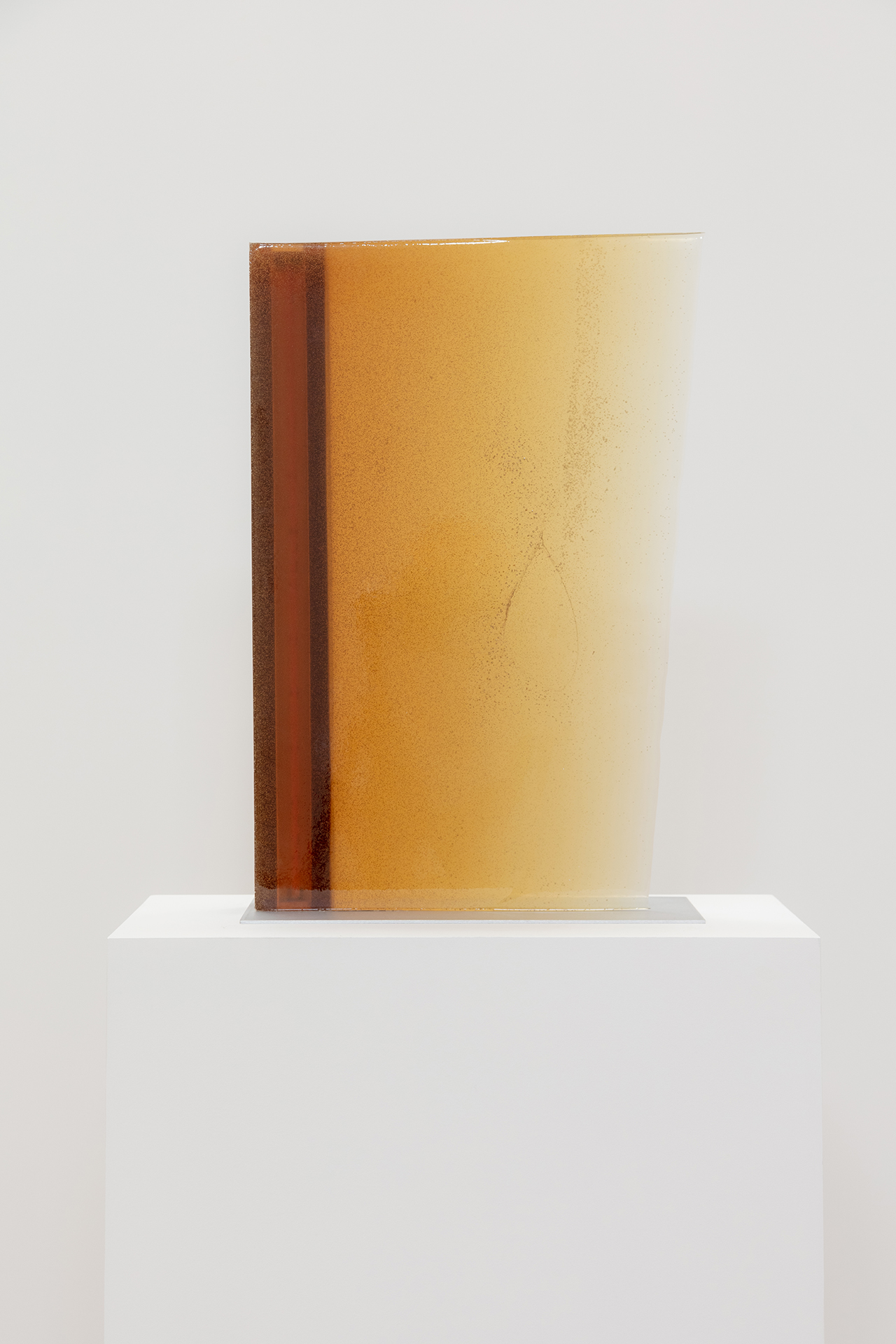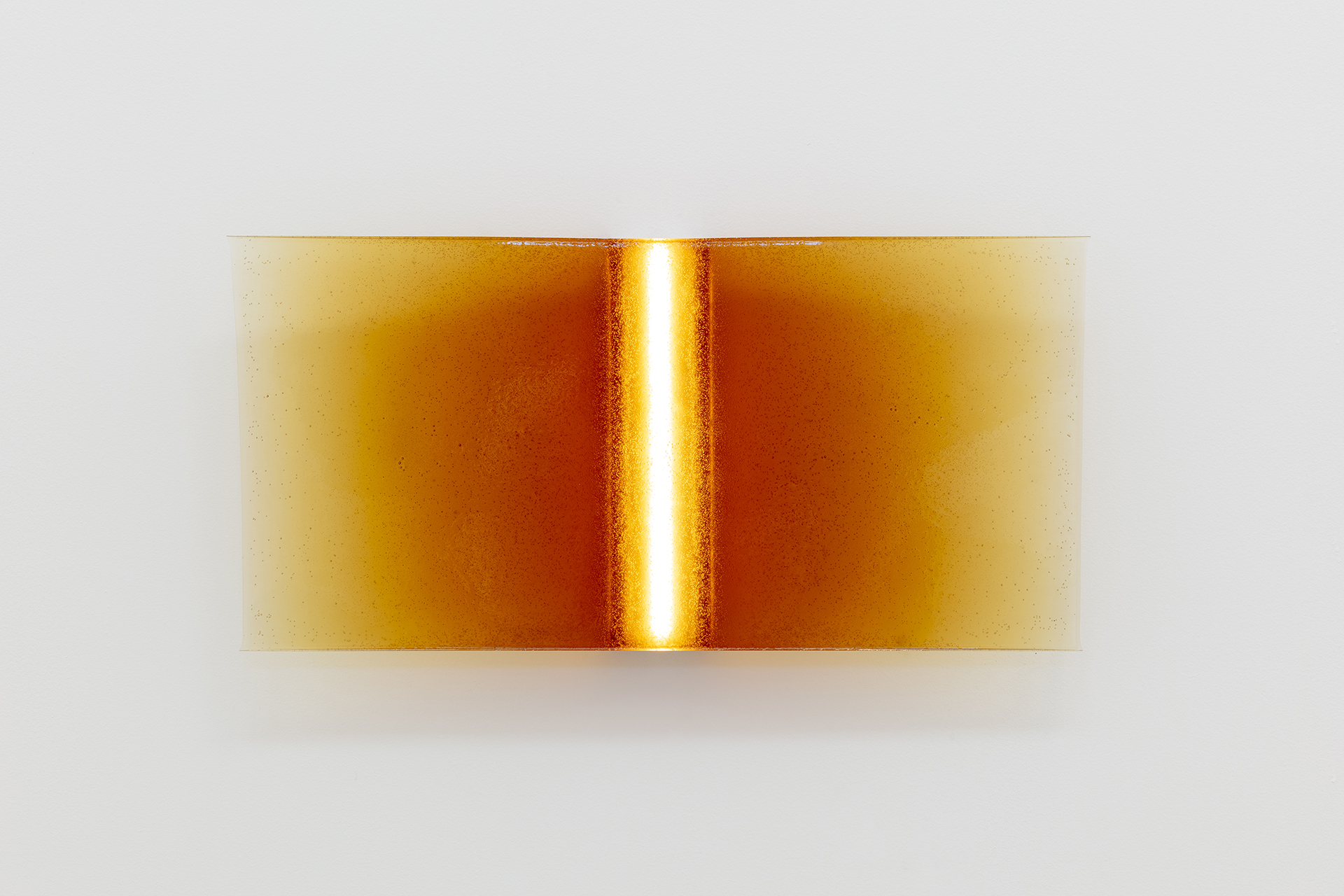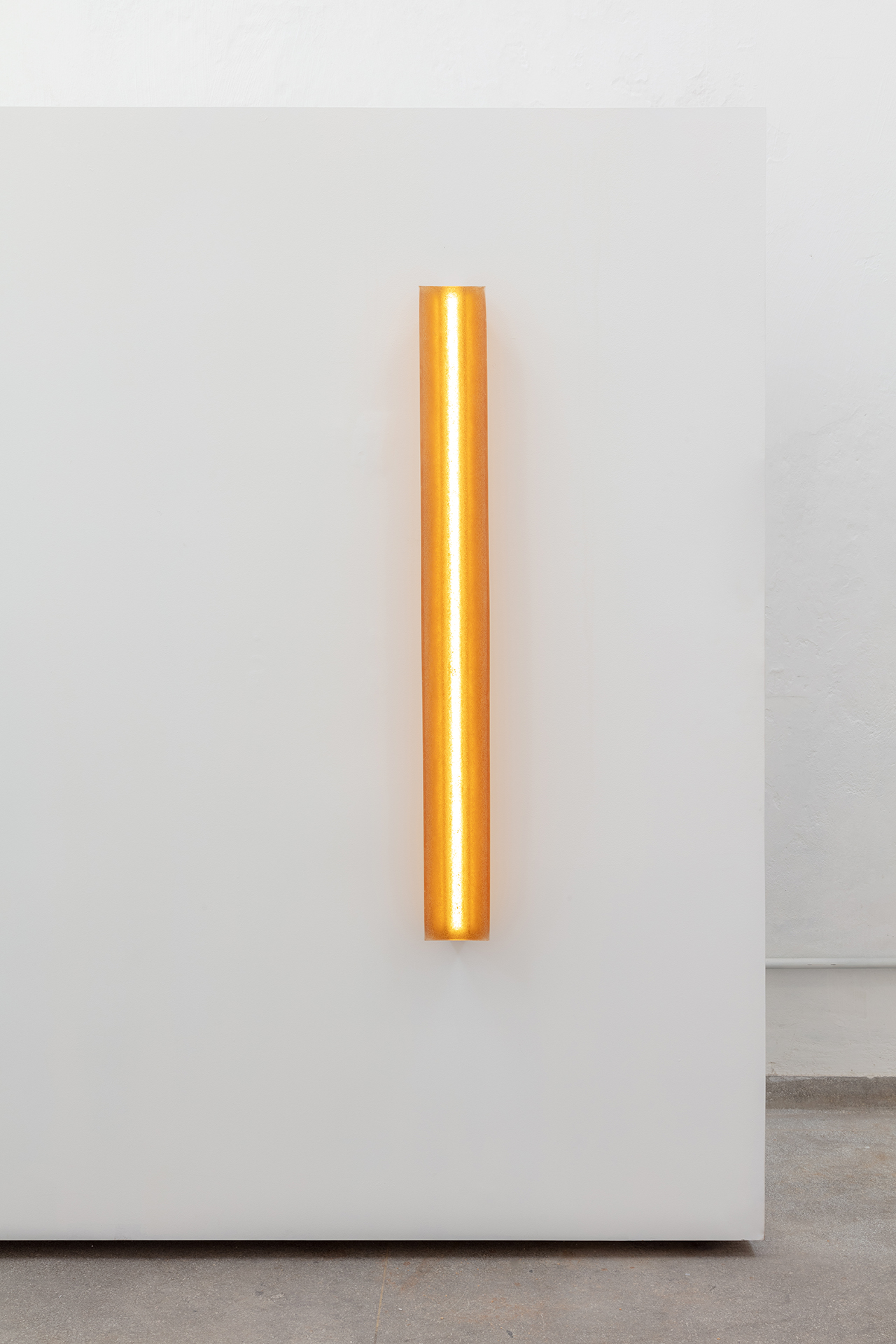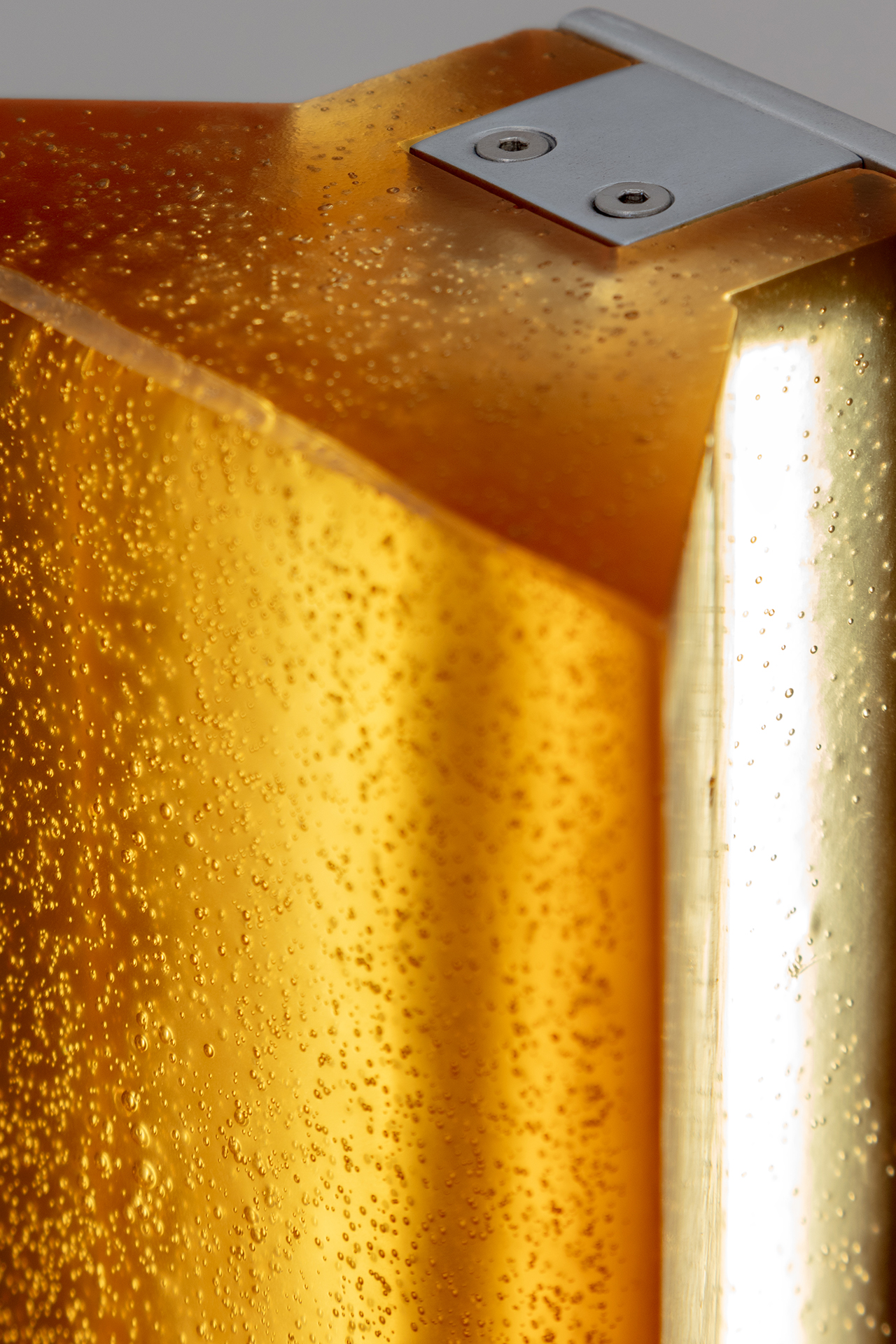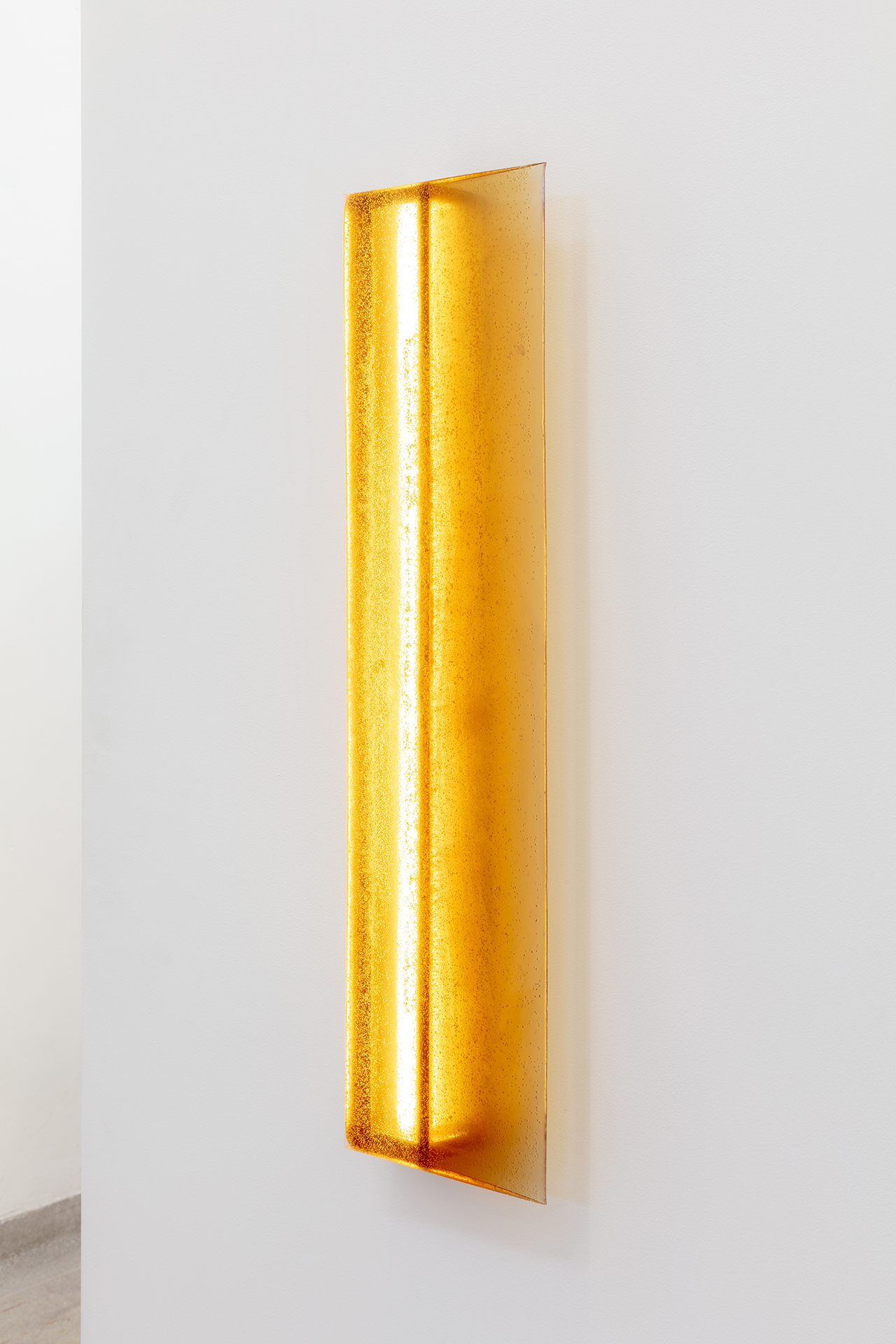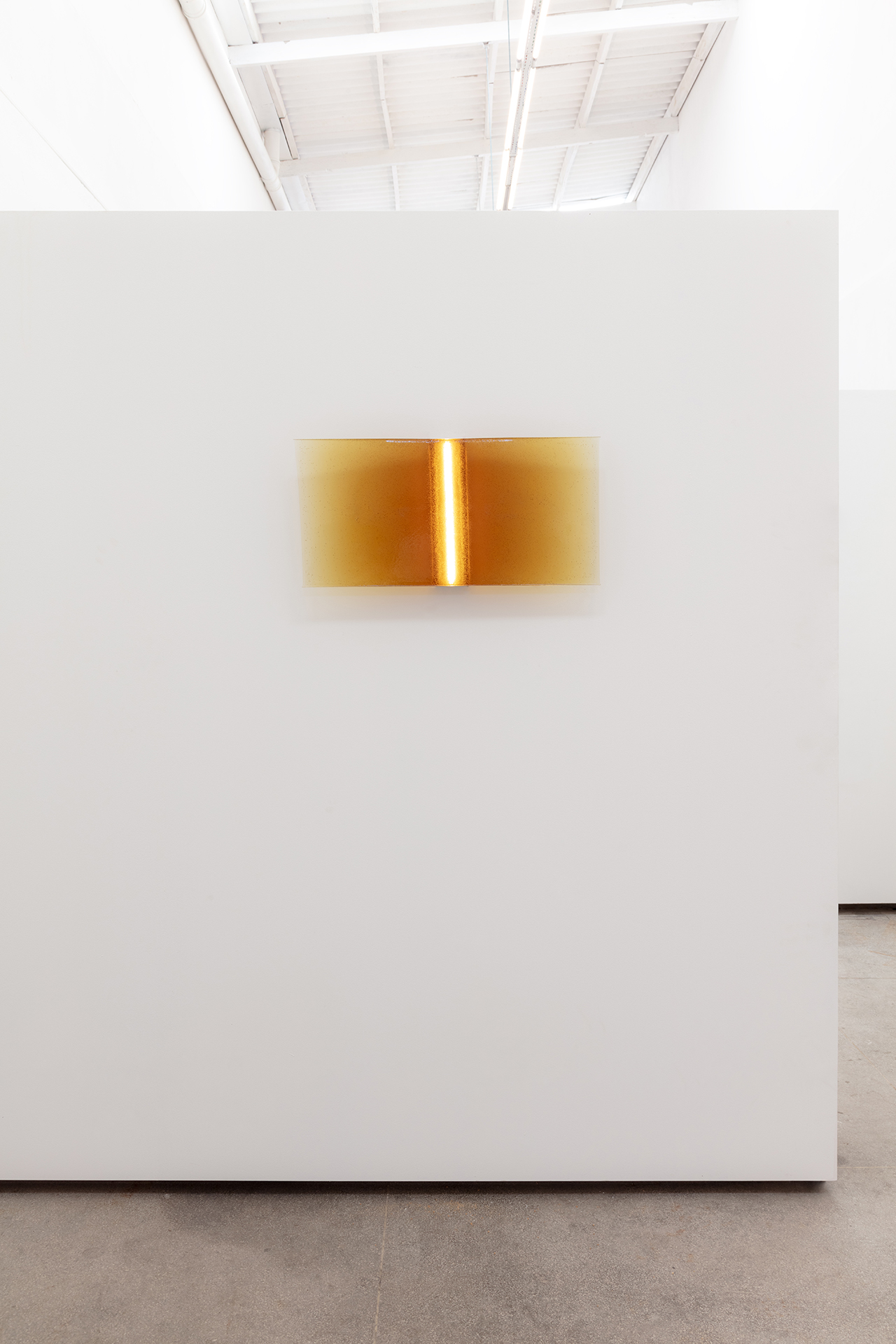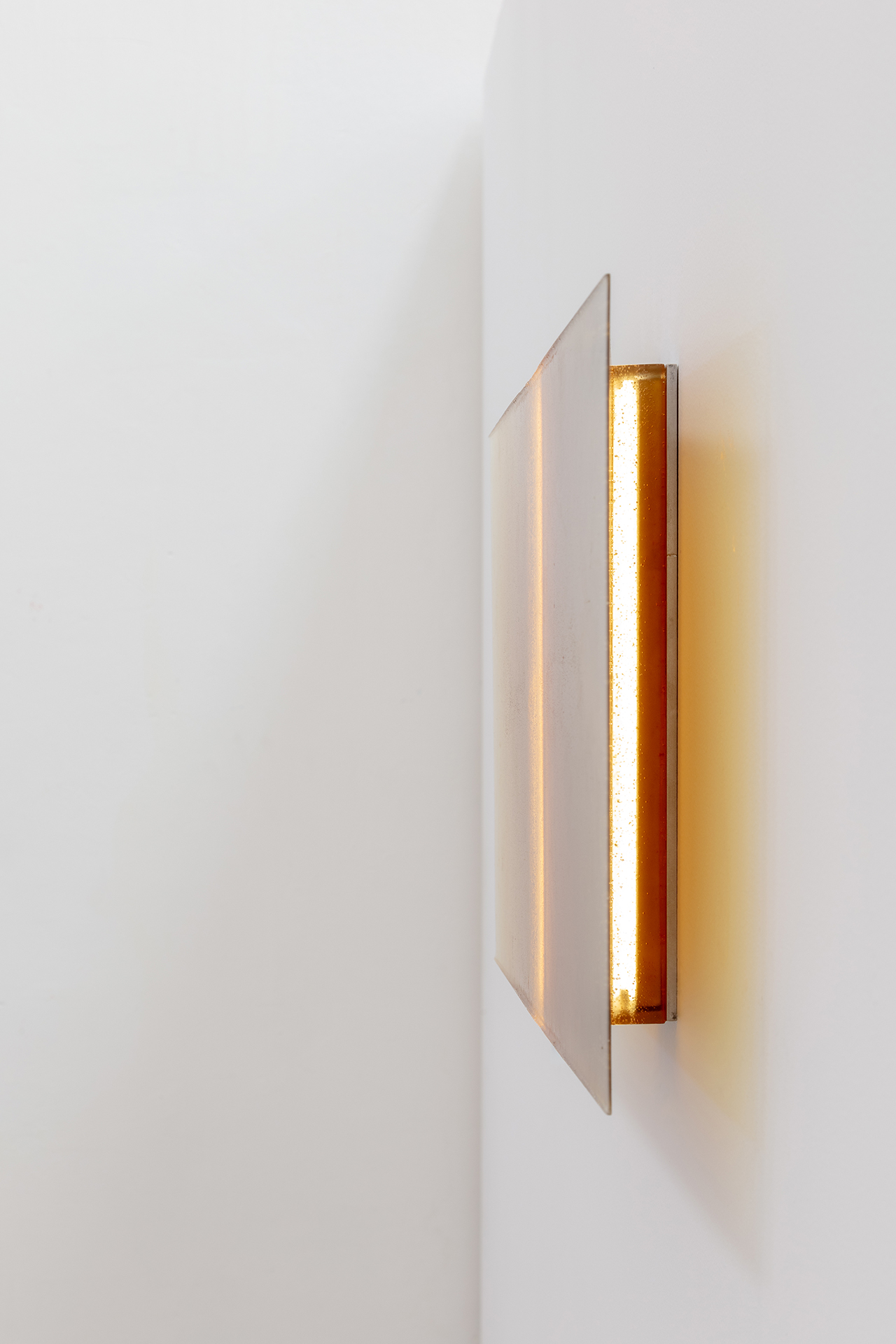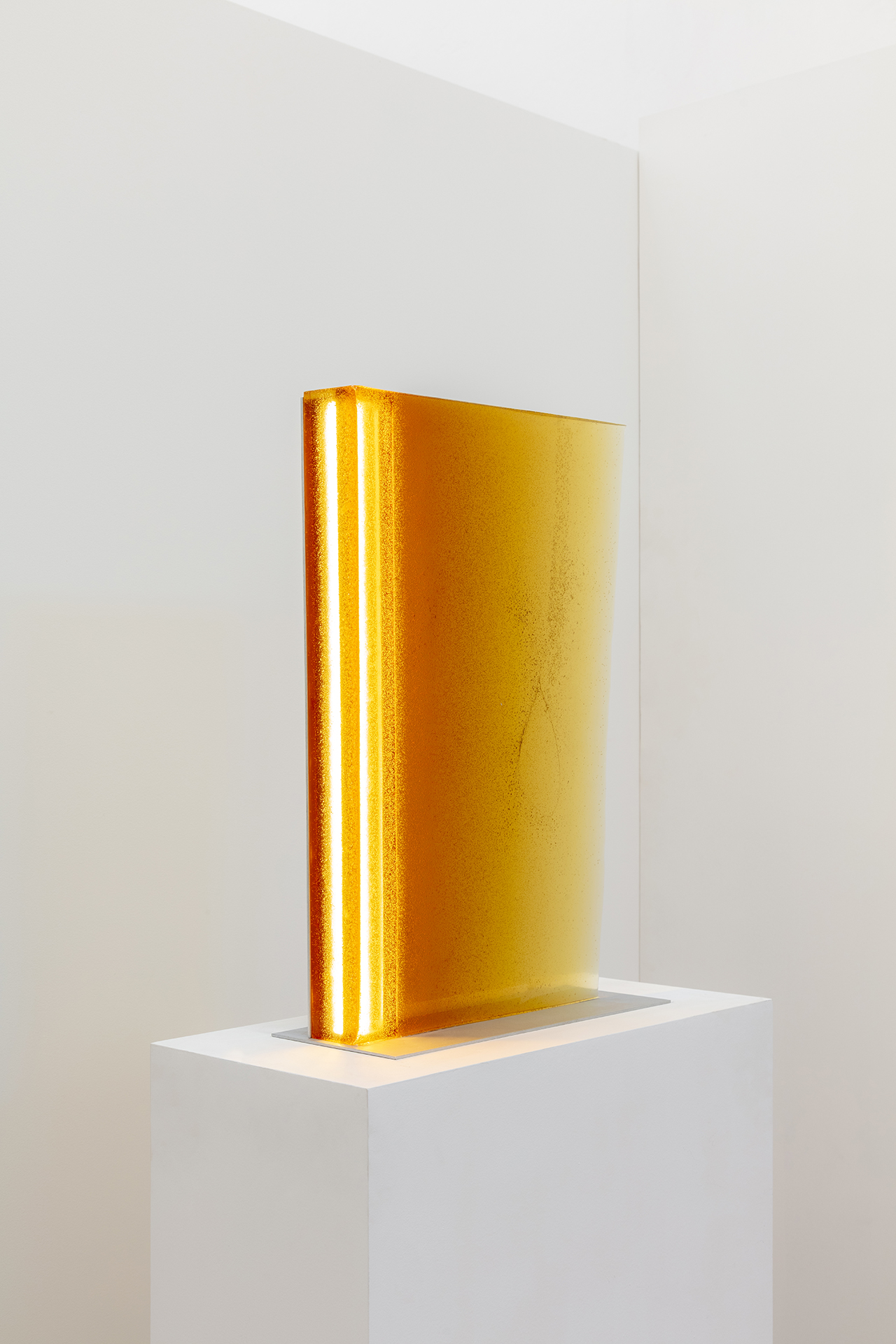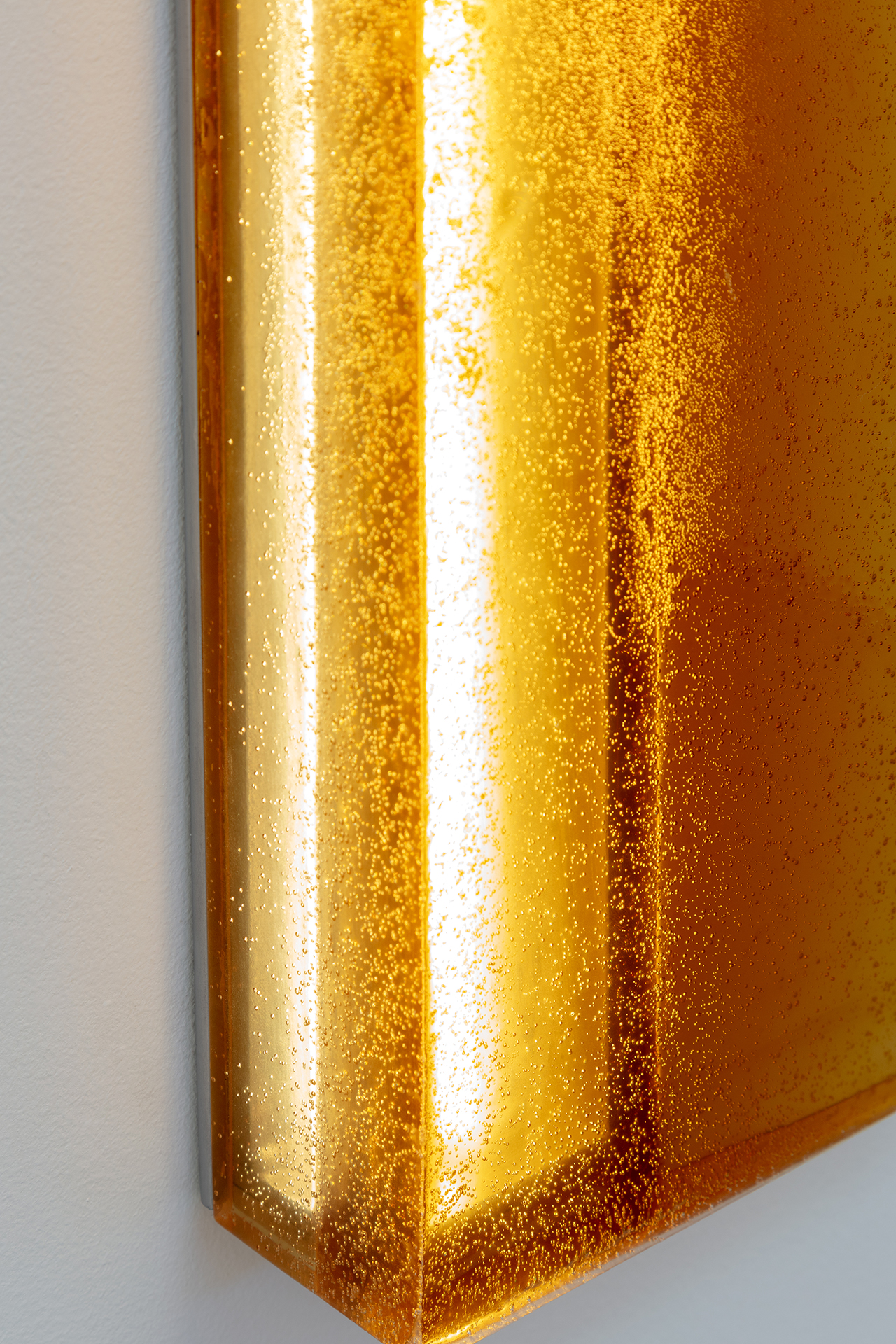Rícino is a minimal lamp designed by Brazil-based studio Estúdio RAIN. Rícino is a series of lamps with an almost incorporeal appearance, made of vegetable resin based on castor oil. The proposal brings to light the living aspect of the material, exalting its aesthetic qualities and proposing an alternative application to its originally technical use. The project arises from the Studio’s interest in natural resins, a research that began in 2018. In the search for a moldable material with good resistance to temperature variation, the plant polymer of castor was arrived at. Its thermal stability allied to its visual aspect – with an amber and transparent color – inspired the development of the collection, which has resin as a central element.
Developed by the University of São Paulo, it is mainly used in civil construction as a waterproofing or varnish. Characteristics such as physical-chemical stability, elasticity and ability to adhere to porous materials make the polymer very efficient in the sustainable replacement of petroleum derivatives. But close observation can show something beyond this function: when placed against the light, the material produces an orange glow, warm and ethereal. From this perception, a research was started to understand the possibilities of use, behavior and limits of the material, with the objective of enabling the casting of large portions of resin mass.
Over the last few years, several experiments have been carried out to adapt its characteristics and potential for use in design. The result is a series of table, wall and floor lamps composed of resin filters, which are structured by aluminum supports. For the technical development and finalization of the project, 3D modeling software was used, which made it possible to calculate mass and volume for the production of molds and parts. The lighting is linear and made by LED systems. From the shapes, textures, densities, tones tested, a result was reached that explores the strength of matter, without giving up delicacy.
The design of the filters takes advantage of the volume of material to create gradients of color that vary along the body of the luminaires. In addition, the irregular line of the puddled edges intends to capture the casting process, preserving the initial liquid aspect of the resin. This allows the final form of the part to tell the story of its production process. Ríno is an ongoing research, which aims to explore new possibilities of use and application for materials from renewable sources.
Photography by Alex Batista
